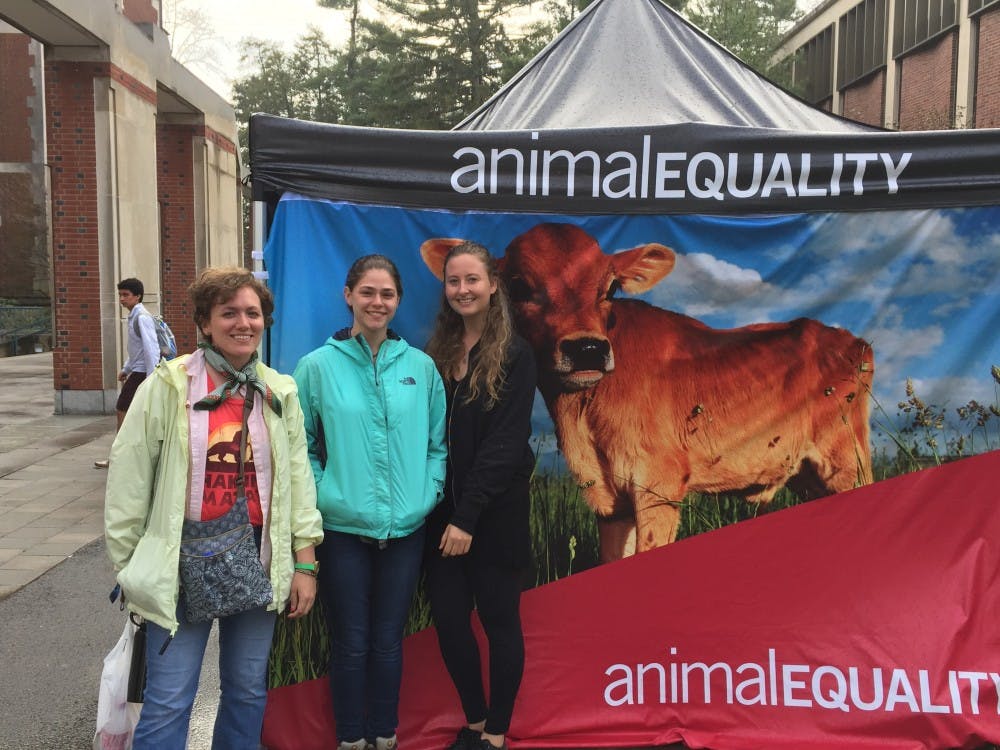The international organization Animal Equality began a three-day survey of the University student community's eating habits on Monday outside the Frist Campus Center.
Invited by the Princeton Animal Welfare Society (PAWS), Animal Equality investigated University students’ responses to international meat agriculture based on different modes of presentation.
The Animal Equality booth outside Frist was manned by Emily Young and Sofia Otfinoski, staff members of Animal Equality, as well as Courtney Buoncore ’18, a member of PAWS.
"What we are doing is conducting a study to measure people’s eating habits and food choices and also gauge how different kinds of outreach impacts people differently.” Young said. “So, we are doing a regular written survey, we are also showing a two-dimensional video some days, and on other days we are doing a virtual reality experience.”
Young added that these techniques are being used to measure how people respond to eating animals.
“This is not a general outreach, as we would normally do.” Otfinoski noted. “Our goals for this is to collect as much data as we can about how people’s behavior changes based on what intervention they received."
She added that their hypothesis is essentially that people are most impacted by virtual reality versus 2D or non-intervention and therefore will more likely make changes to their lifestyle when exposed to the virtual reality experience. Both Young and Otfinoski noted the hospitality and receptiveness of the University community to both the survey and the organization’s message.
“It’s been going very well.” Otfinoski said. “People at Princeton have been very friendly and had some really good questions for us.”

She added that some people have been very shocked by the content of the video that was shown, but she noted that it is very representative of what happens to 99 percent of all meat farmed for food in America.
“I would say I haven’t had anyone say ‘that’s it, I’m going vegan today’,” Young added, “but people are quite receptive and I think we are making an impact, even if people aren’t expressing that.”
Buoncore stressed the importance of Animal Equality’s message to the University community both inside and outside the orange bubble.
“In terms of Princeton, in an academic situation it seems unreasonable for people not to be conscious and analyze the things that they are consuming and realize the implications of their consumption, especially in regards to health reasons and environmental concerns.” Buoncore said. “Even if people are not inclined to transition immediately, it is very important to understand all of the facts behind the issue.”

Animal Equality is an international animal rights nonprofit organization founded in Spain, with the American branch headquartered in Los Angeles. It will finish conducting its survey at the University on Wednesday with a two-dimensional video demonstration from 9 a.m. to 2 p.m.








